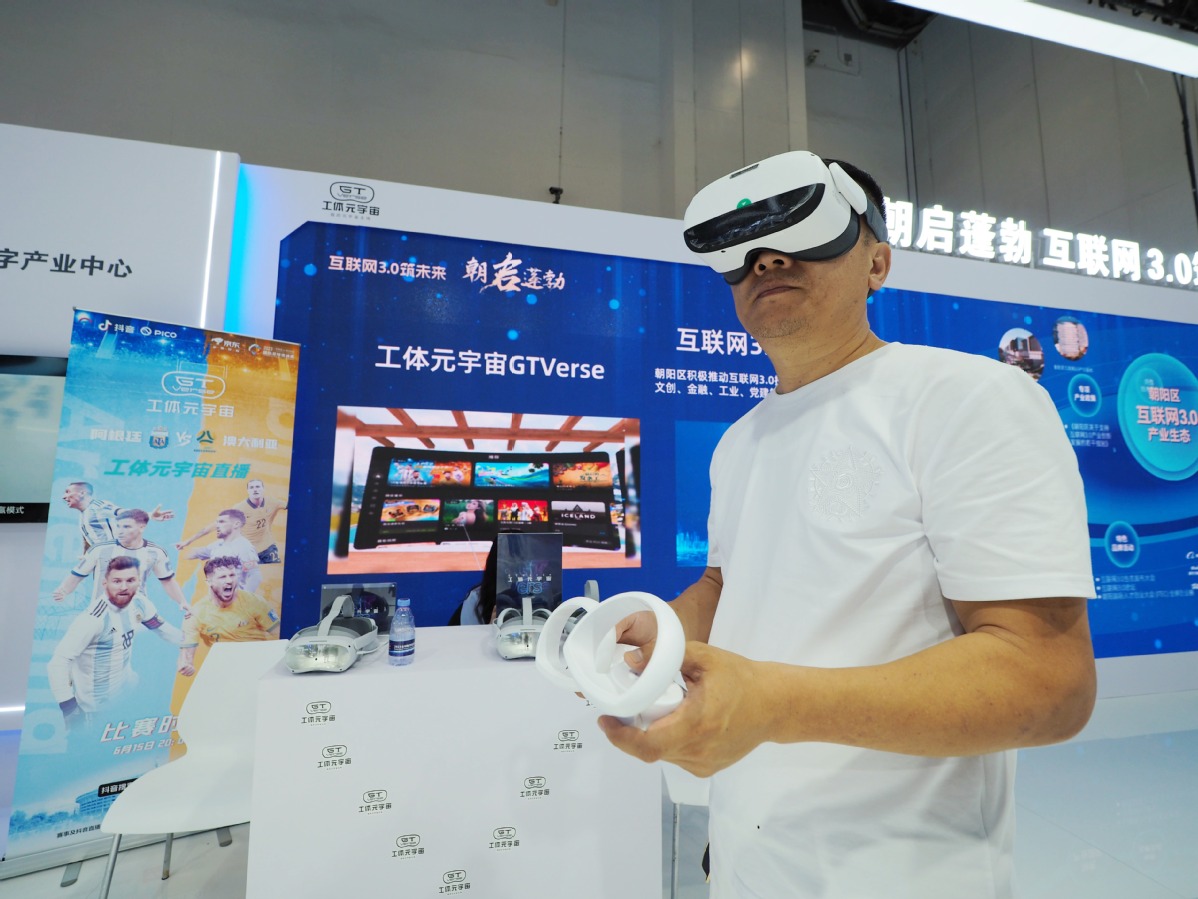Experts: Guideline will spur future industries
By CHENG YU and MA SI | China Daily | Updated: 2024-01-31 09:04

Chinese authorities have reiterated that the development of future-oriented industries like artificial intelligence and large models is a priority.
Their latest top-level guideline led industry experts to say that it will help nurture new productivity boosters and further drive economic growth this year.
The Ministry of Industry and Information Technology, along with six other authorities and departments, unveiled a guideline on Monday, urging the country to grasp global opportunities in technology innovation and industrial development, especially in six future directions: future manufacturing, future information, future materials, future energy, future space and future health.
The guideline also said China aims to achieve breakthroughs in future industries like 6G, humanoid robots, quantum computers, high-speed trains, next-generation aircraft, green intelligent ships and unmanned watercraft.
A batch of incubators and pilot zones of future industries should be built by 2025, while breakthroughs should be achieved in about 100 core technologies in key fields, it said.
"It has become clearer that more efforts are expected to be made to encourage companies to achieve breakthroughs in key technologies and overcome other technical bottlenecks this year, amid intensified global competition and geopolitical uncertainties," said Hong Qunlian, a researcher at the National Development and Reform Commission's Academy of Macroeconomic Research.
"Without breakthroughs in these areas, it is impossible to achieve industrial upgrade and stable industrial growth," Hong said.
Wang Peng, a researcher at the Beijing Academy of Social Sciences, said: "No doubt, scientific innovation in future industries and frontier technologies has played an increasingly bigger role in driving economic growth. As new productivity boosters are highlighted, more innovations from emerging industries will empower the real economy this year."
The latest guideline also highlighted the push for the establishment of an extensive new type of intelligent computing center. This entails accelerating breakthroughs in technologies like graphics processing unit, or GPU, chips, low-latency interconnected networks for clusters and heterogeneous resource management.
The aim is to build a super large intelligent computing center capable of meeting the demands of large model iterative training and application inference, thus addressing the evolving needs of industry and society, the guideline said.
Huang Tiejun, head of the Beijing Academy of Artificial Intelligence, said that over the long term, large models will become the new "infrastructure" of society, just like water, electricity and coal.
The BAAI, also known as the Zhiyuan Institute, is poised to be among the front-runners in the generative AI revolution, along with Open AI's ChatGPT and Google Inc's DeepMind.
"The government is expected to play its overall role of a planner while letting the market to be the major driving force, so that the large models can offer real benefits like economic and social development," he said.
According to a report by the Beijing Municipal Science & Technology Commission, China had developed at least 254 AI large language models, or LLMs, by October last year. Goldman Sachs predicted that breakthroughs in generative AI, represented by applications such as ChatGPT, can drive a 7 percent, or almost $7 trillion, increase in global GDP over a 10-year period.
Notably, Chinese companies are stepping up efforts to develop future industries like large language models and striving to apply those already developed in industries, in order to promote industrial economy.
"We found that GPT-4 is less efficient in the industrial sector and that's where we found opportunities," said Jia Jiaya, founder of smart manufacturing company SmartMore. The company developed industry GPT, one of the first in the industrial sector, which aims to leverage the LLM to drive the efficiency of industrial sectors.
"No large language model in the world can serve high-end manufacturing currently, and we hope that Chinese companies can develop such large language models to enable frontier technologies to empower industries," he said.























